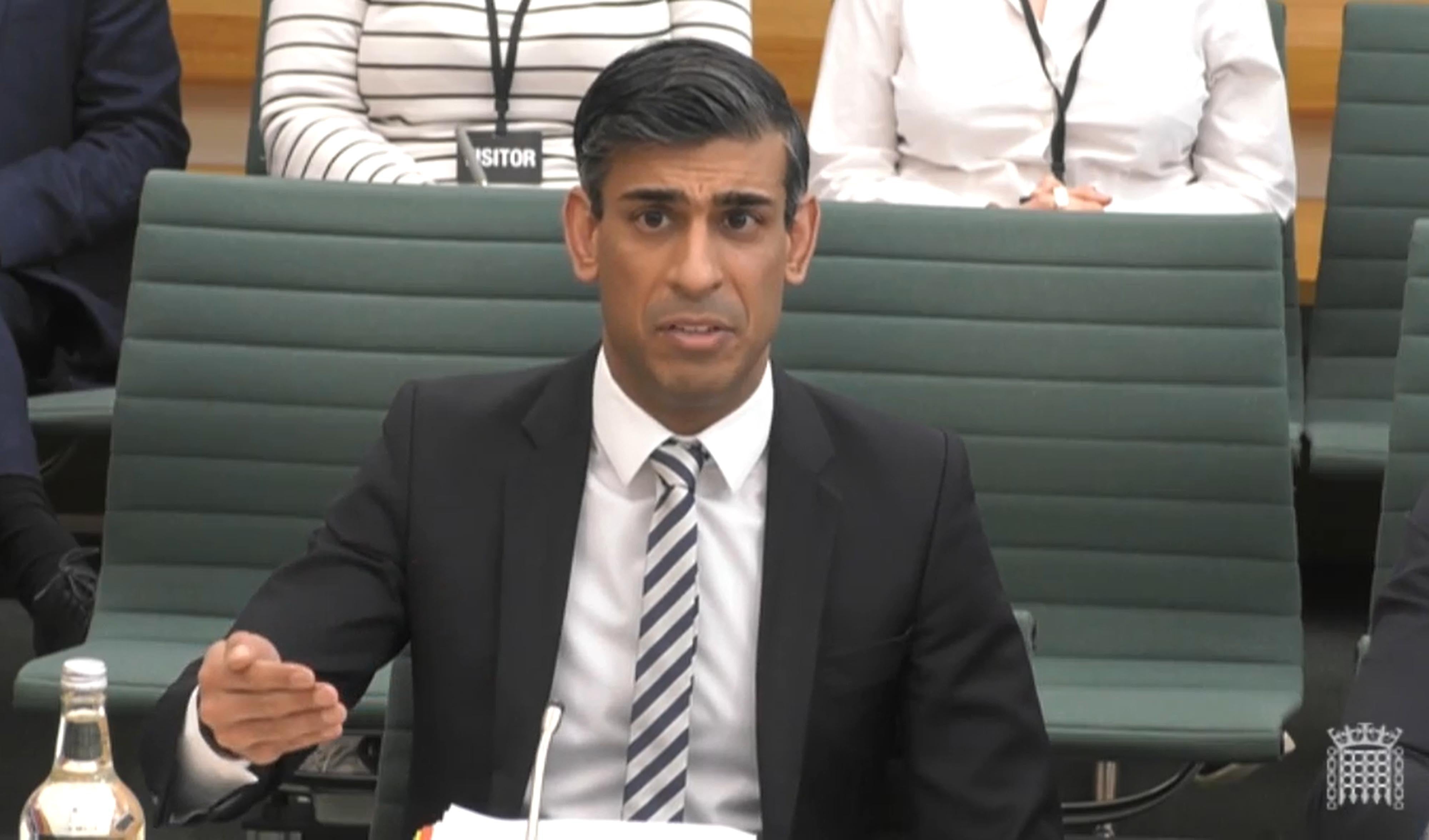Trade hit from Brexit was ‘always inevitable’, Rishi Sunak tells MPs
Chancellor denies EU withdrawal has left UK a more ‘closed’ economy

Your support helps us to tell the story
From reproductive rights to climate change to Big Tech, The Independent is on the ground when the story is developing. Whether it's investigating the financials of Elon Musk's pro-Trump PAC or producing our latest documentary, 'The A Word', which shines a light on the American women fighting for reproductive rights, we know how important it is to parse out the facts from the messaging.
At such a critical moment in US history, we need reporters on the ground. Your donation allows us to keep sending journalists to speak to both sides of the story.
The Independent is trusted by Americans across the entire political spectrum. And unlike many other quality news outlets, we choose not to lock Americans out of our reporting and analysis with paywalls. We believe quality journalism should be available to everyone, paid for by those who can afford it.
Your support makes all the difference.It was “always inevitable” that Brexit would have an impact on UK trade with the rest of Europe, chancellor Rishi Sunak has admitted.
Mr Sunak agreed that it “might well be” the case that the slump in trade intensity experienced by the UK compared to other leading economies has been caused by the fact that Britain was the only one of them to go through Brexit.
The chancellor’s comments came after the Office for Budget Responsibility published research suggesting that the UK’s “trade intensity” has tumbled by around 15 per cent as a result of leaving the EU.
They represent one of the clearest admissions yet from Boris Johnson’s pro-Brexit administration that EU withdrawal was bound to reduce the UK’s commercial relationship with its closest trading partners.
Figures published by the OBR alongside last week’s mini-budget showed the UK’s goods export volume falling dramatically at the start of 2020 as Brexit came into effect, and failing to recover as quickly as other advanced economies from the Covid pandemic.
In stark contrast to the promises of Leave campaigners at the time of the 2016 referendum, the OBR said it was clear that trade deals struck so far with the rest of the world were not of a sufficient scale to offset the fall-off in commerce with the EU.
Speaking to the House of Commons Treasury Committee, Mr Sunak said it was difficult to “disentangle” the impact of Brexit on trade from the blow delivered by the Covid pandemic.
But he told the cross-party panel of MPs: “It was always inevitable that there would be a change in our trade intensity with Europe as a result of a change in the trading relationship. That was expected and unsurprising.”
The committee’s Conservative chair, former Treasury minister Mel Stride, said that the OBR figures show that “there’s been a slump in the level of our trade with the EU” and that, while other countries’ trade flows had recovered strongly from the Covid pandemic, the UK’s had “stayed down”.
“Doesn’t that tell you that the main distinction between ourselves and them is that we went through Brexit and they did not?” asked Mr Stide.
The chancellor replied: “It might well be, I’m just saying it’s too early to be definitive.”
Mr Sunak rejected suggestions that the UK economy had become more “closed” as a result of Brexit, saying that the government’s intention was to open up trade with other parts of the world.
But Mr Stride responded: “That’s an aspiration, but the reality appears not.”
Mr Sunak replied: “Trading relationships take time. They don’t happen overnight. So I think that of course that will happen over a period of time.”
Mr Stride said that a delay in replacing lost European trade could hit UK productivity and living standards.
“If it remains the case that these new deals don’t float our boats up very quickly and we stay down roughly where we are and we are a more closed economy, what concerns would you have around that, particularly around our mission to try and improve productivity and living standards?” he asked the chancellor.
Mr Sunak replied that the assumption of declining trade with the EU was already built into OBR forecasts.
Join our commenting forum
Join thought-provoking conversations, follow other Independent readers and see their replies
Comments